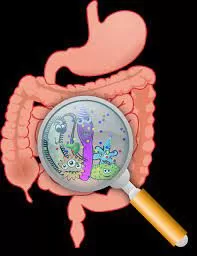Two new clinical trials presented at the European Society of Cardiology (ESC) Congress have confirmed that the timing of antihypertensive medication — whether taken in the morning or at night — does not influence the risk of cardiovascular events or death. These findings, from the BedMed and BedMed-Frail trials, reinforce earlier results and resolve the debate sparked by previous studies.
The controversy began in 2010 when Spanish researchers published findings from the MAPEC trial, followed by the 2019 Hygia Chronotherapy Trial, which suggested that taking blood pressure medication at bedtime could significantly reduce the risk of heart attack and stroke. However, subsequent trials, including the 2022 TIME study, found no such benefit. The latest BedMed trials now further confirm these results, putting an end to the speculation around optimal timing.
BedMed and BedMed-Frail Trials: Key Findings
In the BedMed trial, 3,357 hypertensive patients in Canada were randomly assigned to either morning or bedtime dosing of their blood pressure medication. Over a follow-up period of up to six years, the researchers found no significant difference in cardiovascular events or deaths between the two groups. Similarly, in the BedMed-Frail trial, involving 776 elderly patients from residential care homes, no significant difference was observed between morning and nighttime dosing during a 42-month follow-up.
Both trials focused on primary outcomes such as death, heart attack, stroke, and heart failure. The BedMed trial reported a 9.7% rate of these events in patients taking their medication at bedtime compared to 10.3% in the morning group. The BedMed-Frail trial showed similar results, with 40.6% of patients in the bedtime group and 41.9% in the morning group experiencing major cardiovascular events.
Dr. Scott Garrison, lead investigator of both trials from the University of Alberta in Canada, concluded, “We can now say with confidence that the benefits and risks of antihypertensive medications do not vary with the time of day they are used.”
No Difference in Safety Events
The trials also monitored safety outcomes, including postural hypotension, falls, and adverse effects related to vision and cognition. There was no significant difference between the groups in terms of safety, further supporting the idea that patients can take their medication at a time most convenient for them.
“People should take their antihypertensives at a time that best suits them,” Garrison said. He also noted that certain side effects, such as ankle swelling from calcium blockers or nighttime urination from diuretics, may influence individual preferences for timing.
Resolving a Controversial Debate
Dr. Isla Mackenzie from the University of Dundee, who discussed the BedMed trials at the ESC Congress, highlighted that the earlier MAPEC and Hygia trials had been controversial due to the “implausibly large benefit” they reported with nighttime dosing. These findings had prompted a wave of new research, but the latest trials, including BedMed and TIME, have now consistently shown no difference between morning and nighttime dosing.
“With three trials now showing similar results, I advise my patients to take their antihypertensive medication at a regular time of day when they will best remember to take their tablets,” Mackenzie stated.
The BedMed trials provide clarity for patients and healthcare providers alike: the timing of antihypertensive medication does not affect its efficacy, and patients should take their medications at a time that fits best into their routine.











